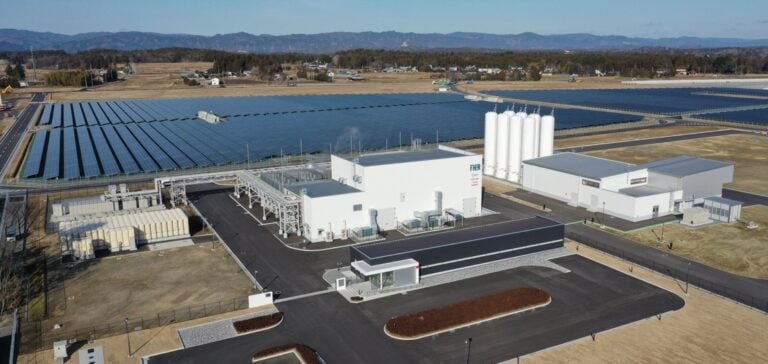TotalEnergies invests in the “Japan Hydrogen Fund”, a fund specifically dedicated to the development of low-carbon hydrogen.
The fund, which has raised over $400 million for its launch, brings together a number of major Japanese companies.
Participants include Toyota Motor Corporation, Iwatani Corporation, Sumitomo Mitsui Banking Corporation, MUFG Bank, Tokyo Century Corporation, Japan Green Investment Corp.
for Carbon Neutrality and Bank of Fukuoka.
The initiative is managed by Advantage Partners, a major private equity player, under the leadership of the Japan Hydrogen Association (JH2A), an organization with over 440 members.
The presence of TotalEnergies as the only non-Japanese investor at this stage of the fund underlines a strategy of positioning itself within the Asian market. The company is seeking to capture the rapidly evolving hydrogen ecosystem in Japan, renowned for its technological advances and industrial decarbonization initiatives.
The fund aims to support projects linked to the hydrogen value chain, including production, transport, storage and end-use.
Implications for the hydrogen market
TotalEnergies’ entry into the “Japan Hydrogen Fund” is part of a growing trend of international collaborations to promote low-carbon technologies.
By participating in this fund, the company is taking a proactive approach to diversifying its activities and supporting low-carbon hydrogen initiatives worldwide.
This fund could facilitate the deployment of the infrastructures needed to accelerate the use of hydrogen as an alternative energy source, particularly in the industrial and transport sectors.
For the financial and industrial players involved, this investment represents an opportunity to collaborate on concrete projects, pooling risks and capitalizing on the technical and financial know-how of the parties involved.
By integrating private equity and sector expertise, the “Japan Hydrogen Fund” offers a platform to stimulate innovation and accelerate the adoption of hydrogen in Japan and potentially in other Asian markets.
Strategic and economic context
TotalEnergies’ commitment to this fund echoes its previous hydrogen strategies.
In 2021, the company launched the Hy24 fund with Air Liquide and VINCI, designed to support the development of clean hydrogen in Europe.
Participation in the Japanese fund reflects a desire to extend its investments beyond Europe and strengthen its position in key markets where the energy transition is at the heart of national priorities.
Hydrogen is seen by many experts as a viable decarbonization solution, particularly for heavy industry and transport.
Japanese and European governments, as well as energy and industrial companies, are stepping up initiatives to integrate hydrogen into their energy transition strategies.
The Asian market, and Japan in particular, is playing a leading role in the development of these technologies, with significant investments and favorable regulatory frameworks.
Challenges and prospects for energy players
TotalEnergies’ participation in this fund is strategic on several levels.
Firstly, it enables us to position ourselves among the most advanced players in the low-carbon hydrogen field, while benefiting from the knowledge and experience of Japanese companies.
Secondly, it opens up prospects for closer collaboration between Europe and Asia, facilitating technological exchanges and the adoption of innovative solutions.
For other industrial players, this initiative could serve as a model for international cooperation on decarbonization projects.
The pooling of resources and convergence of objectives between the various participants in the fund are key elements that could inspire other regions to launch similar funds, adapted to local realities and specific energy needs.
A no-nonsense approach to promotion
The “Japan Hydrogen Fund” is not just an investment platform, but a focal point for international cooperation in the hydrogen sector. Far from being limited to declarations of intent, the fund aims for concrete results with structured projects and clear deadlines.
For TotalEnergies and its partners, the challenge is to transform these financial commitments into tangible infrastructure and operational technologies that can be deployed on a large scale.
This type of collaboration, between players from different geographical and industrial horizons, illustrates a growing trend towards the integration of resources and skills in the energy transition.
The success of the Japan Hydrogen Fund could also encourage other funds to follow this model, stimulating further investment and partnerships in the low-carbon hydrogen field.






















